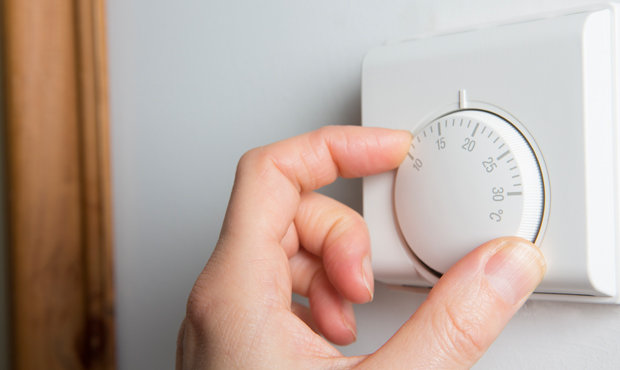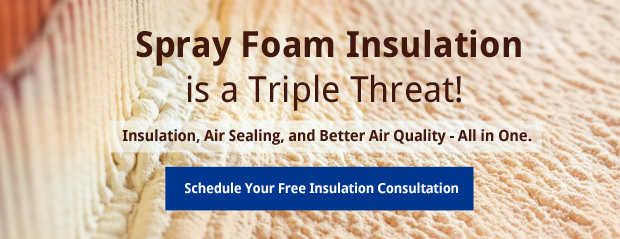
Florida is known for being one of the warmest states in the country. As winter approaches the rest of the United States, many northerners escape the snow and fly south for the winter. But whether you’re a snowbird or a Florida local, you’ll start to notice cold weather as we get deeper into the winter months. The southern part of the Sunshine State typically experiences a mild winter. The central and northern areas routinely experience temperature drops and can hit the 40s, 30s, and sometimes even the 20s! As the air cools outside, you might find yourself turning the thermostat up. However, sometimes adjusting the temperature isn’t enough to keep warm. What’s going on here?
Reasons Your Home Cools Down in Florida Winter
Every home is different, but there are a few common reasons they can’t hold in the heat.
Some of the most common causes include:
Reason # 1: Air leaks let warm air escape and cold air infiltrate.
Air leaks can be a significant cause of energy and heat loss in your home, but they are very good at hiding. They occur commonly around doors and windows, as well as in electrical outlets and various other places around your home. These leaks allow that precious warm air to escape – and you’re not paying to heat the neighborhood! Plus, your heating system may be working overtime to keep your home warm, causing higher energy costs. There are a few ways to deal with air leaks.
- Do it yourself: Are you a DIY pro? This could be your best weekend project yet! Perform a candle test to locate leaks, purchase some caulk at your local hardware store, and seal your doors and windows. When these leaks are sealed, more warm air will stay inside (and that cool air will stay out!).
- Call in the professionals: DIY sealing can be a great way to stop apparent leaks, but what about the more sneaky ones? Professional air sealing is the answer you’re looking for. When you call for backup, a professional can perform several tests to pinpoint leaks in your home and help you to seal them up. Properly sealing your home helps you keep a warm house, save energy, lower utility bills, and improve your indoor air quality.
Reason #2: Your heating system and ductwork needs service.
Another possible reason your home can’t seem to heat up is your ductwork. Take the time to think about this: when was the last time you cleaned your ducts? When dirt makes its home in your ducts, it can be blown into the mechanisms of your heating (and cooling) system. A clogged HVAC system has to work much harder to heat your home. Not only that, but this is the air in your home! It’s the air you breathe – if it’s dirty, it’s likely to make you sick. Improve the indoor air quality and make sure your HVAC system is energy efficient. Having your air conditioner serviced can save energy and your respiratory system.
Your ductwork may be hiding another secret: more air leaks. Leaks can reduce your HVAC system’s efficiency by 40 percent! These leaks are vital to address, and doing so can significantly improve your home’s comfort. Ductwork can be complicated to handle yourself, so we recommend calling professionals to clean and seal ductwork.
Reason #3: Your Insulation Isn’t Up to the Challenge
Why don’t you go to bed on a cold night without a blanket? You’d freeze! You use a blanket to stay warm on winter nights trapping warmer air inside, keeping you cozy. Though you usually don’t see or think about it, your home comes with a built-in blanket: insulation.
Your home’s insulation is designed to be a barrier between you and the outside world. It keeps the cold air out and the warm air in. But if your insulation is faulty or insufficient, it won’t be enough to keep your home comfortable, just like a blanket full of holes won’t keep you warm. You may need to replace your insulation altogether or add insulation. A professional will be able to help with this.
There are many different types of insulation, but spray foam is the best for the Florida climate. It is dense insulation that creates an airtight seal inside your walls. Not only does it keep warm air inside in the winter, but it also keeps cold air inside during the summer and banishes moisture from your walls all year long! Spray foam insulation comes in two different types, closed-cell, and open-cell. Each provides various benefits as one is more rigid and dense, and the other is more flexible and light.
With proper insulation, your HVAC system will use less energy to heat your home. Your Florida home will feel warmer, and you won’t spend as much money to keep comfortable!
Additional Tips to Keep Your Warm and Energy Efficient
Here are a few tips to help keep your Florida home warm this winter.
Consider installing a programmable thermostat.
A smart thermostat is great for keeping your home’s temperature comfortable all day. Stay comfortable year-round and make your air conditioning unit work less.
Consider getting heat strips when there’s a cold snap.
Heat strips will keep your hot water heating system from working extra. You may not think about your water heater when cold weather strikes, but it’s important to have heated water when you need it. This means saving energy and money!
Update your air conditioning unit.
Updating your air conditioner can be pricey but important if you believe yours cannot be fixed. Don’t just settle for any air conditioning unit and ask a qualified professional.
Purchase door draft stoppers.
Door draft stoppers keep cold air from coming in through your doors. Whether you buy them or make your own, door draft stops keep warmth in and keep money in your wallet. Also, door draft stoppers are fairly inexpensive and can be found at any home improvement store.
Winter is fast approaching, and even Floridians have to prepare for reality: the temperature is going to drop. Don’t suffer in silence this year – prepare your home before the cold air comes in. Schedule your free spray foam consultation with Wattson Home Solutions. We’ll inspect your existing insulation and help you decide if it needs to be replaced or filled in. Our experienced and certified team can also do a free energy assessment to show you where your home may be vulnerable. Save money, time, and headaches by letting our professionals help!








